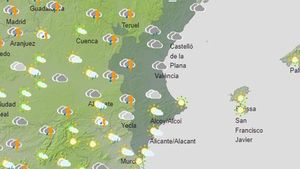On Thursday, April 3, 2025, Tamara Lich and Chris Barber, prominent organizers of the 2022 "Freedom Convoy" protests, were found guilty of mischief in an Ottawa courthouse. The protests, which gridlocked Canada’s capital for weeks, involved hundreds of vehicles and thousands of participants who demanded the elimination of COVID-19 public health mandates. The demonstrations not only disrupted daily life in downtown Ottawa but also impacted trade with the United States, costing billions of dollars.
Ontario Court Justice Heather Perkins-McVey delivered the verdict, stating that the evidence presented showed Lich and Barber routinely encouraged individuals to join or remain at the protest, fully aware of the adverse effects it was having on local residents and businesses. Despite the defense's argument that the organizers had called for a peaceful protest and blamed any disorder on police and city officials, the court found sufficient grounds for the mischief conviction.
The mischief charge, which can carry a maximum penalty of ten years in prison, stemmed from the significant disruption caused by the protests. Justice Perkins-McVey noted that the actions of Lich and Barber were not without consequences, as they led to significant inconvenience for those living and working in the area.
Barber was also found guilty of counselling others to disobey a court order by instructing participants to ignore an injunction that prohibited honking truck horns in downtown Ottawa. Lich, however, was not charged with this specific offense. Both organizers were acquitted of more serious charges, including intimidation and obstructing police.
During the proceedings, Justice Perkins-McVey referenced multiple TikTok videos posted by Barber, which he used to communicate with the protesters. In one notable video, Barber described an empty intersection as "lonely," suggesting that it should be filled with trucks. Justice Perkins-McVey remarked, "My goodness, I had to watch all these TikToks because words themselves don’t really do them justice. You need to see the sarcastic tone or hear it. You need to watch those TikToks, and I did." This commentary highlighted how Barber’s social media presence contributed to the protest atmosphere.
Supporters greeted Lich and Barber outside the courthouse, with expressions of encouragement echoing through the crowd. One woman hugged Barber, while others shouted, "We love you, Tamara," as Lich entered the courthouse with her lawyer, Lawrence Greenspon. The emotional support from their followers underscored the strong backing the two organizers have maintained throughout their legal battles.
The verdict came after a lengthy legal process that has drawn criticism from various quarters. John Carpay, president of the Justice Center for Constitutional Freedoms, which assisted in Barber’s defense, expressed concerns about the duration of the trial. He stated, “If Tamara Lich and Chris Barber had played a leadership role in organizing protests against racism, transphobia or climate change, they would not have faced 45 days of trial over a period of 31 months.” This remark reflects a sentiment among some supporters that the legal proceedings against the organizers were excessively prolonged.
The protests, which began as a grassroots movement by truckers opposing vaccination requirements to cross the U.S. border, gained widespread support, particularly from Alberta. Barber, who owns a trucking company in Swift Current, Saskatchewan, and Lich, a political activist from Medicine Hat, Alberta, became central figures in the movement.
Former Prime Minister Justin Trudeau took significant measures to counter the protests, invoking a rare emergency order that allowed authorities to freeze the bank accounts of protesters and deploy substantial police resources in Ottawa. Similar blockades occurred at various border crossings, including Windsor, Ontario, and Coutts, Alberta, where police discovered a cache of weapons, leading to severe criminal charges against some participants.
As the court proceedings continue, with a sentencing date to be set on April 16, 2025, the implications of this case extend beyond the individuals involved. The outcome may influence future protests and the legal framework surrounding public demonstrations in Canada.
In the wake of the verdict, the protests and their aftermath remain a polarizing topic in Canadian society. Supporters of the Freedom Convoy view Lich and Barber as champions of civil liberties, while critics argue that their actions endangered public safety and disrupted the lives of countless individuals in Ottawa. The debate over the balance between protest rights and public order continues to resonate across the nation, highlighting the complexities of democratic expression in times of crisis.
As the legal saga unfolds, both Lich and Barber have indicated their unwavering commitment to their cause. Lich stated in a post on social media before the verdict, “I love Canada, and no matter the outcome today, that will never change.” This sentiment encapsulates the resilience of the movement, even in the face of legal challenges and public scrutiny.
The Freedom Convoy protests have left a lasting mark on Canada, igniting discussions about the limits of protest, government authority, and the role of public opinion in shaping policy. As the country moves forward, the lessons learned from this chapter in Canadian history will undoubtedly influence future activism and the relationship between citizens and their government.






